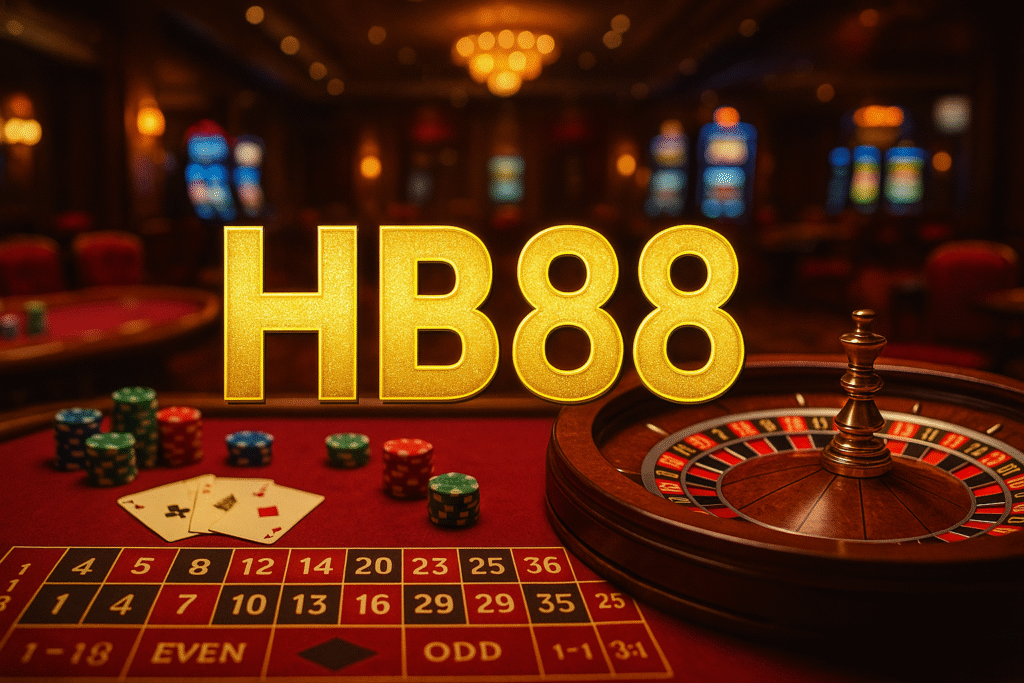
Casino games have long fascinated players across the globe, not only for their entertainment value but also for the emotional and psychological reactions they evoke. Whether it’s the anticipation of a slot spin, the thrill of a roulette wheel, or the strategy behind poker, there’s a deeper psychology at play that keeps people engaged. Reputable platforms like HB88 leverage this understanding to create immersive and responsible gaming experiences that appeal to both casual players and seasoned gamblers.
At the core of casino psychology is the chính sách bảo mật concept of variable rewards. This means that players don’t win every time they play, but when they do, the reward can vary in size. This unpredictability activates the brain’s reward system and releases dopamine—a chemical associated with pleasure and motivation. Much like social media notifications or video game achievements, these small, random wins keep players coming back for more, hoping the next spin or card will bring a bigger payout.
Another psychological factor is the near-miss effect. In slots, for example, landing two jackpot symbols and one just barely missing creates a sense of “almost winning,” which can be more motivating than a complete loss. It gives the illusion that a win is just around the corner, encouraging further play. Game designers are well aware of this phenomenon and use it to design engaging, thrilling experiences—something HB88 implements without compromising fairness.
Loss aversion also plays a key role. People tend to feel the pain of losing more intensely than the joy of winning. This can cause players to chase losses in an attempt to “break even,” even when the odds remain unchanged. Understanding this can help players recognize emotional decisions and approach casino games with more awareness. HB88 promotes responsible gaming with tools that let users set loss limits or take breaks to prevent this kind of behavior from getting out of hand.
Sensory design is another tool used to enhance engagement. Bright lights, colorful graphics, and stimulating sound effects create an immersive environment that keeps players focused and entertained. This is especially true for online platforms like HB88, which offer games with dynamic visuals and audio cues that mimic the feel of a real casino. These sensory elements contribute to the overall thrill and atmosphere of gameplay.
Then there’s the concept of illusion of control. Games like blackjack or poker, where decisions influence outcomes, can make players feel more in control than they actually are. While skill certainly matters in these games, chance still plays a major role. This perception of influence can increase engagement and lead players to return frequently, believing their strategy can overcome luck.
Social dynamics also affect how people play. Leaderboards, tournaments, and multiplayer features foster competition and community. People enjoy comparing their performance with others or joining games with friends. HB88 taps into this by offering multiplayer options and regular competitions that add a social layer to solo play.
Importantly, trusted platforms use this psychological insight not just to attract players, but also to protect them. HB88, for example, encourages responsible gaming through built-in features such as self-exclusion, betting limits, and informative pop-ups reminding players of how long they’ve been active. This creates a safer environment where entertainment doesn’t spiral into harm.
In summary, casino games are more than just games—they’re experiences carefully designed with human psychology in mind. From the excitement of uncertain rewards to the sensory stimulation of gameplay, it’s easy to see why they’re so engaging. However, understanding these psychological drivers allows players to enjoy the thrill without losing control. Platforms like HB88 use this knowledge not only to entertain, but also to empower their users to play smart and stay safe.